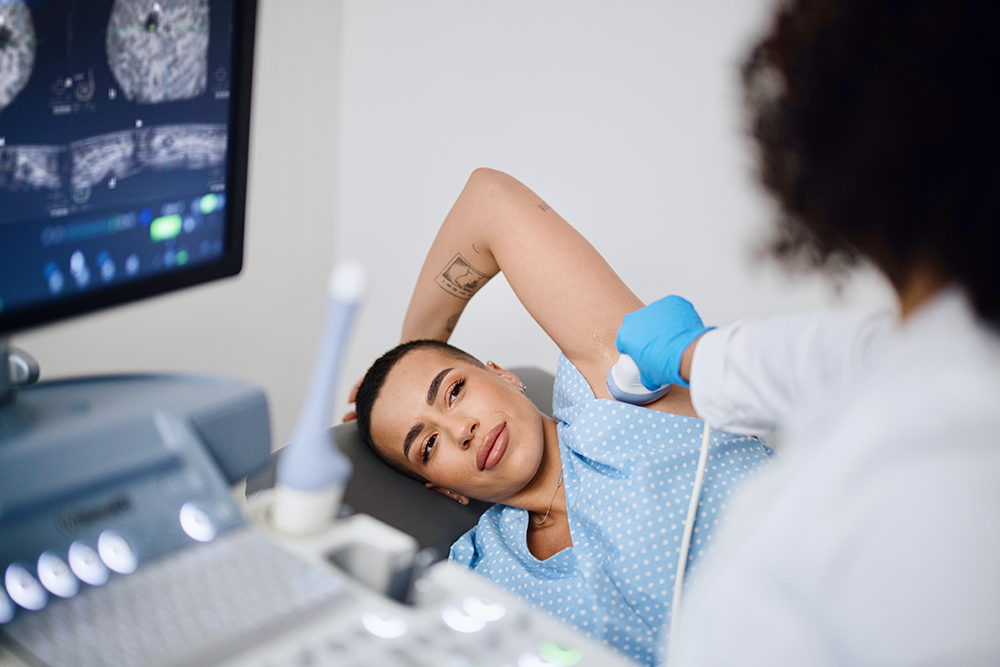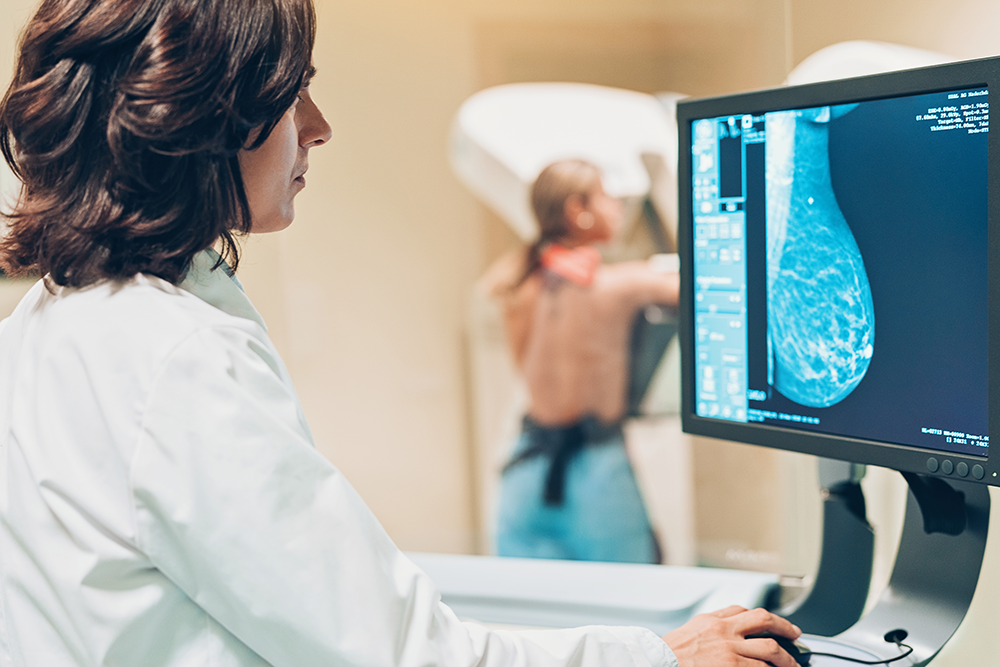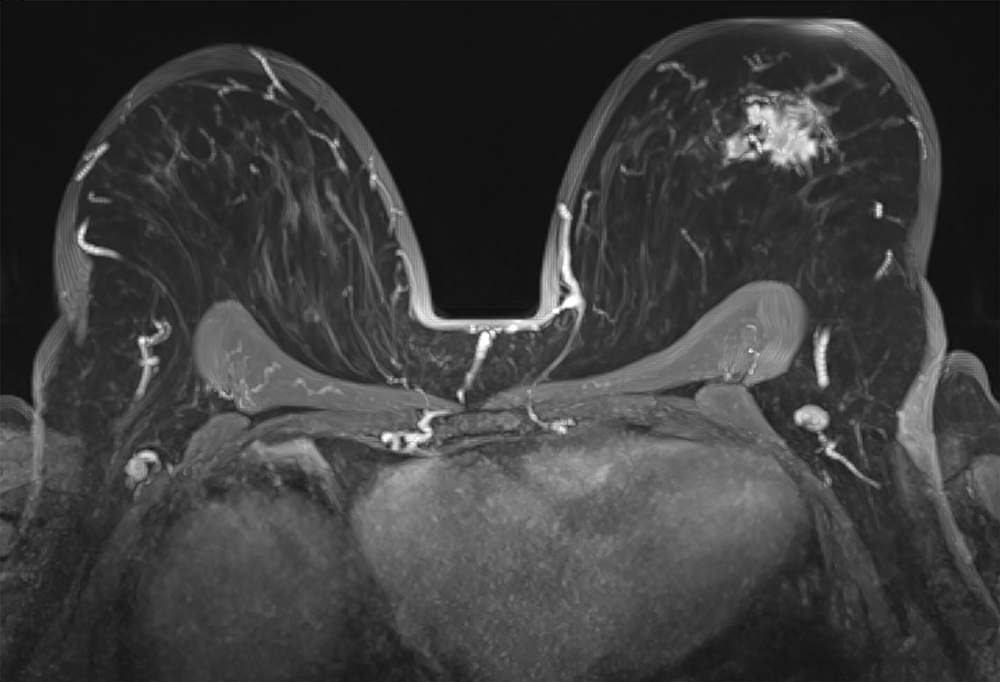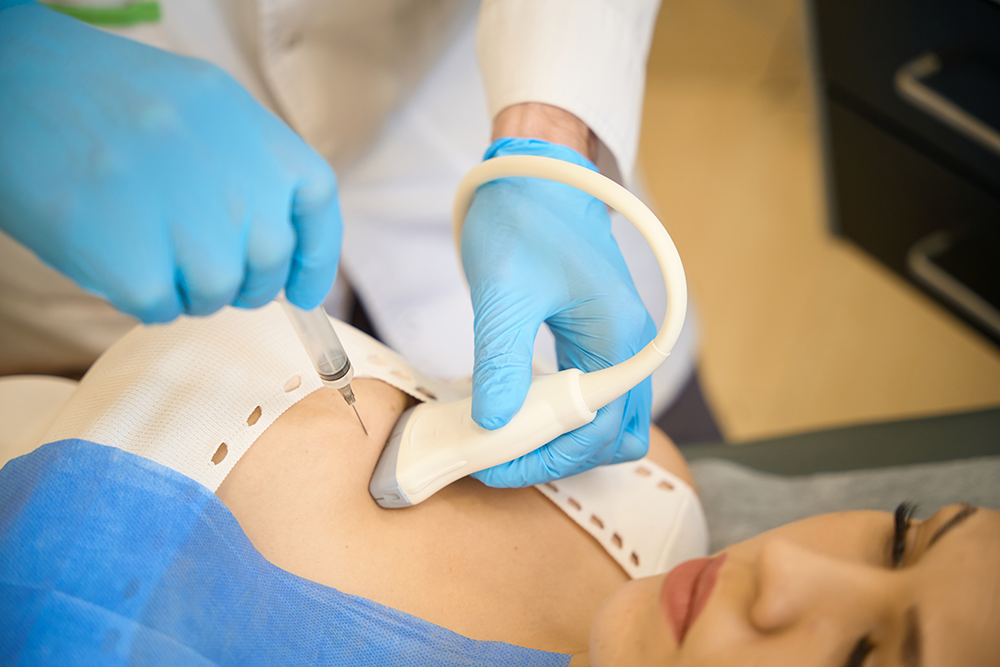by Dr. Jennifer Carroll, FACS, Breast & Melanoma Surgical Oncology
Every woman should undergo an evaluation for her risk of breast cancer at the age of 25. For women at an average lifetime risk of breast cancer, screening mammograms should begin at age 40 as this is essential for the early detection of cancer. Women at higher risks of breast cancer may be offered additional screening options. The American Society of Breast Surgeons Screening Recommendations offer helpful insight on screening options.
If your screening mammogram shows an abnormality, repeat imaging with magnified mammograms or an ultrasound may be performed. If this demonstrates an abnormality, follow up imaging or a biopsy may be recommended.
What Is a Breast Biopsy?
A biopsy is a procedure that removes a piece of tissue from a suspicious area identified on imaging. The sample will then be examined in a lab.
A breast biopsy can be done in several ways. The type of biopsy you will have depends on how the area of concern was best identified. Breast biopsies do not require anesthesia, are performed with numbing medicine, and leave minimal scarring.
Types of breast biopsies include:
Ultrasound guided breast biopsy: This will be done if the area of concern was able to be seen on an ultrasound and is typically performed while you are laying on your back or side.

Stereotactic breast biopsy: This is usually done for calcifications or areas that cannot be seen with an ultrasound. Instead, your mammogram is used to identify the area that needs to be biopsied. The biopsy is usually done while laying on your stomach, but some facilities can do the biopsy in a sitting position.

MRI guided breast biopsy: This would usually only be performed if an area of concern could not be seen on a mammogram or ultrasound. The biopsy is done while laying on your stomach.

What to Expect after Your Breast Biopsy
Bruising is common following a biopsy. You will be advised on wearing a supportive bra following your procedure. Pain is usually managed with Tylenol or Ibuprofen. Ice can also help with pain and bruising. You can resume normal activities within a day.
Understanding the Results of Your Breast Biopsy
After your biopsy, the tissue is sent to a pathologist, a doctor who looks at the tissue on slides under a microscope to make a diagnosis.
Understanding Benign Breast Biopsy Results
The majority of breast biopsies do not find cancer. Your results may describe a non-cancerous or benign change in the breast. You may see the following terms to describe non-cancerous changes to the breast:
- Adenosis
- Apocrine metaplasia
- Cysts
- Columnar cell change
- Columnar cell hyperplasia
- Duct ectasia
- Papillomatosis
- Pseudoangiomatous stromal hyperplasia
- Fibrocystic breast changes
- Usual ductal hyperplasia
Many benign breast conditions do not need to be removed with surgery and do not affect your future breast cancer risk.
Understanding Atypical Breast Biopsy Results
Some breast biopsies may identify “atypical” cells that are not cancers but may increase your risk of breast cancer in the future. You may be recommended to see a breast provider to discuss a surgical biopsy or to discuss medications to reduce your risk of developing breast cancer. You may see the following terms to describe atypical biopsy results:
- Atypical ductal hyperplasia
- Atypical lobular hyperplasia
- Lobular carcinoma in situ
Understanding Cancerous Breast Biopsy Results
If cancer cells were found in your breast biopsy sample, your pathology report will provide additional information about the cancer’s characteristics. This will help you and your cancer care team decide what treatment plan is best for you. Here is some information you may see in your pathology report.
- Invasive or Noninvasive (in situ) cancer
- Type of cancer (ductal, lobular, etc.)
- Grade of the Cancer
- Hormone Receptors
- Estrogen
- Progesterone
- HER2 neu
Your breast team will review this information with you and discuss treatment recommendations.
Learn More About Breast Cancer Screening and Treatment
If you have any questions about breast cancer screening, your mammogram report, or your biopsy results, please consult your physician. They can help answer questions and address concerns you may have.
For more information about your breast cancer risk or treatment of breast cancer, please visit the Minnesota Oncology Breast Care Team or call 952.746.6767 for an appointment.
Learn more about Dr. Jennifer Carroll




